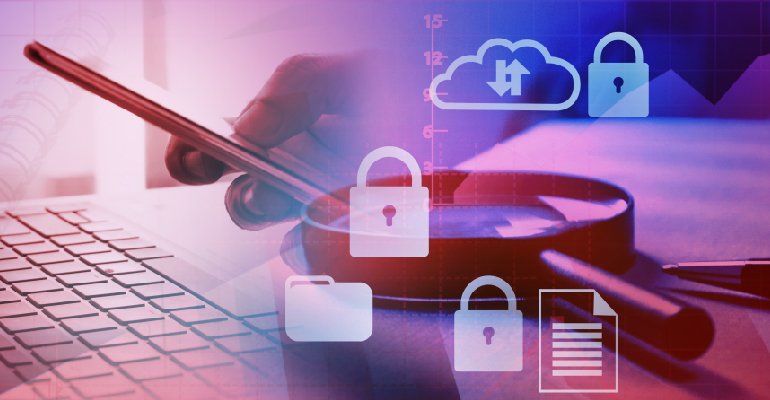
Our data is our most valuable asset. But every day, cybercriminals become more sophisticated, putting businesses of all sizes at risk. Data breaches, malware attacks, and phishing scams can cripple operations, erode customer trust, and inflict substantial financial losses. Understanding your organization’s cybersecurity posture is crucial to mitigate these risks proactively. This is where a cybersecurity assessment comes in.
This blog post will delve into cybersecurity assessments, explaining what they are, the various types available, and, most importantly, why your business needs one. By the end of it, you’ll be equipped with the knowledge to make informed decisions about safeguarding your valuable data and ensuring the continued success of your organization.
What is cybersecurity assessment?
Cybersecurity assessment is a comprehensive review of an organization’s information system to identify the strength of its defenses against cyber threats. It involves evaluating security policies, controls, procedures, and technical safeguards. The aim is to pinpoint vulnerabilities, assess possible risks, and align cybersecurity strategies with the business objectives.
Types of Cybersecurity Assessments
There are several types of cybersecurity assessments that organizations can undertake:
- Vulnerability Assessment: Analyzes systems to uncover security weaknesses.
- Penetration Testing: Simulates cyber-attacks to test the effectiveness of security measures.
- Risk Assessment: Identifies, assesses, and prioritizes risks to the system.
- Security Auditing: Conducts a systematic review of security controls, performance, and compliance.
- Compliance Assessment: Verifies that security measures comply with relevant laws, regulations, and policies
5 Signs Your Business May Need a Security Risk Assessment
A security risk assessment can be vital for identifying vulnerabilities and strengthening your defenses. Here are five signs that your business might be due for a security checkup:
Benefits of conducting cybersecurity assessments

There are several significant benefits to conducting cybersecurity assessments for your organization:
- Proactive Threat Identification: Regular assessments act like a security scan, uncovering weaknesses and vulnerabilities in your systems before attackers can exploit them. This allows you to patch vulnerabilities and strengthen defenses before a breach occurs.
- Improved Decision-Making: Assessments provide valuable data on your cybersecurity posture. This data helps leadership make informed decisions about resource allocation, prioritize security investments, and strengthen overall cybersecurity strategy.
- Compliance with Regulations: Many industries have regulations regarding data security. Regular assessments ensure you meet these compliance requirements, avoiding potential fines and legal issues.
- Fosters Security Culture: The assessment process often involves collaboration across departments. This can raise awareness of cybersecurity issues and promote a culture of security best practices.
- Reduced Risk of Financial Loss: Cyberattacks can be costly, resulting in downtime, data loss, and regulatory fines. Proactive assessments help prevent these costly incidents.
- Boosted Efficiency and Productivity: Data breaches and cyberattacks can significantly disrupt operations. Regular assessments help minimize downtime and keep your business running smoothly.
What are the different types of cybersecurity assessment frameworks?
Cybersecurity frameworks provide structured approaches for managing cybersecurity risks. Popular cybersecurity assessment frameworks include:
Cybersecurity assessment with StrongBox IT
A cybersecurity assessment can be valuable for understanding your organization’s security posture and identifying any weaknesses attackers could exploit. StrongBox IT’s assessment likely involves a combination of techniques, such as:
- Vulnerability scanning involves using automated tools to scan your systems for known vulnerabilities.
- Penetration testing consists of simulating a cyberattack to see if attackers can access your systems.
- Security audits involve reviewing your security policies and procedures to identify gaps.
Once the assessment is complete, we will provide you with a report detailing their findings and recommendations. This report will help you prioritize your security efforts and take steps to mitigate the risks identified.
Cybersecurity assessments are not a one-time task but an ongoing process. As the threat landscape evolves, so should the strategies and defenses of any organization. Companies can stay one step ahead in the cybersecurity game by understanding what a cybersecurity assessment entails and actively engaging in it. Whether you’re running a small local shop or a large multinational corporation, the question isn’t if you need a cybersecurity assessment—it’s when you will conduct your next one.
Now that you understand the importance of cybersecurity assessments take the next step and secure your organization’s future. Contact StrongBox IT today for a comprehensive evaluation tailored to your specific needs. Our team of certified professionals will work with you to identify and address security gaps, providing you with the peace of mind that your data is protected.






